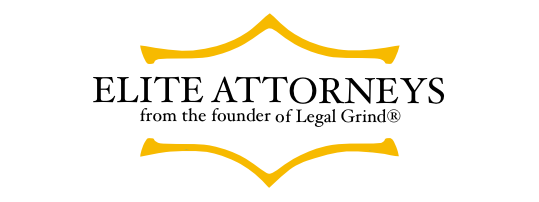


Coffee & CounselSM BUSINESS LAW CLINIC: estate planning, probate, real estate, contracts, small business start-ups, dissolutions and litigation, CHAPTERS 7, 11, & 13 bankruptcy and/or debt negotiation with Attorney Josh Driskell. Please call Josh at 310-452-8160 or email to schedule an appointment. For Coffee and CounselSM Law Clinics, a 15 minute consult is at the reduced rate of $45 and a half hour is relatedly at $90. Phone, email or complete the form here.
Through estate planning, you can determine:
You do — whether your estate is large or small. Either way, you should designate someone to manage your assets and make health care and personal care decisions for you if you ever become unable to do so for yourself. For many, such “life planning” is the most important aspect of an estate plan.
If your estate is small, your plan may simply focus on who will receive your assets after your death, and who should manage your estate, pay your last debts and handle the distribution of your assets. If your estate is large, your lawyer will also discuss various ways of preserving your assets for your beneficiaries and of reducing or postponing the amount of taxes which otherwise might be payable after your death.
If you fail to plan ahead, a judge will appoint someone to handle your assets and personal care. And your assets will be distributed to your heirs according to a set of rules known as intestate succession. Contrary to popular myth, everything does not automatically go to the state if you die without a will. Your relatives, no matter how remote, and, in some cases, the relatives of your spouse, have priority in inheritance ahead of the state. Still, they may not be your choice of heirs; an estate plan gives you much greater control over who will inherit your assets after your death.
All of your assets. This could include assets held in your name alone or jointly with others, assets such as bank accounts, real estate, stocks and bonds, and furniture, cars and jewelry. Your assets may also include life insurance proceeds, retirement accounts and payments that are due to you (such as a tax refund, outstanding loan or inheritance).
The value of your estate is equal to the “fair market value” of all of your various types of property — after you have deducted debts (your car loan, for example, and any mortgage on your home).
The value of your estate is important in determining whether your estate will be subject to estate taxes after your death (see #11) and whether your beneficiaries could later be subject to capital gains taxes. Ensuring that there will be sufficient resources to pay such taxes is another important part of the estate planning process.
A will is a traditional legal document that:
Most assets in your name alone at your death will be subject to your will. Some exceptions include securities accounts and bank accounts that have designated beneficiaries, life insurance policies, IRAs and other tax-deferred retirement plans, and some annuities. Such assets would pass directly to the beneficiaries and would not be governed by the terms of your will.
Probate is a court-supervised process for transferring a deceased person’s assets to the beneficiaries listed in his or her will. Typically, the executor named in your will would start the process after your death by filing a petition in court and seeking appointment. Your executor would then take charge of your assets, pay your debts and, after receiving court approval,distribute the rest of your estate to your beneficiaries. If you were to die intestate (that is, without a will), a relative or other interested person could start the process. In such an instance, the court would appoint an administrator to handle your estate. Personal representative is another term used to describe the administrator or executor appointed to handle an estate.
Simpler procedures are available for transferring property to a spouse or domestic partner or for handling estates in which the total assets amount to less than $150,000.
The probate process has advantages and dis-advantages. The probate court is accustomed to resolving disputes about the distribution of assets fairly quickly through a process with defined rules. In addition, the probate court reviews the personal representative’s handling of each estate, which can help protect the beneficiaries’ interests.
One disadvantage, however, is that probates are public. Your estate plan and the value of your assets will become a public record. Also, because lawyer’s fees and executor’s commissions are based on a statutory fee schedule, a probate may cost more than the management and distribution of a comparable estate under a living trust. Time can be a factor as well. A probate proceeding generally takes longer than the administration of a living trust. Discuss such advantages and disadvantages with an estate planning lawyer before making any decisions.
Labor law (also known as labour law or employment law) mediates the relationship between workers, employing entities, trade unions and the government. Collective labor law relates to the tripartite relationship between employee, employer and union. Individual labor law concerns employees' rights at work and through the contract for work. Employment standards are social norms (in some cases also technical standards) for the minimum socially acceptable conditions under which employees or contractors are allowed to work. Government agencies (such as the former US Employment Standards Administration) enforce labour law (legislative, regulatory, or judicial).
Yes. Certain kinds of assets are transferred directly to the named beneficiaries. Such assets include:
Keep in mind that these beneficiary designations can have significant tax benefits and consequences for your beneficiaries — and must be carefully coordinated with your overall estate plan.
Home - The Little Law Book - Legal Grind®
EliteAttorneys.com
2640 Lincoln Blvd, Box 6
Santa Monica, CA 90405
310.452.8160
info@eliteattorneys.com
Some of the content is from The State Bar of California.